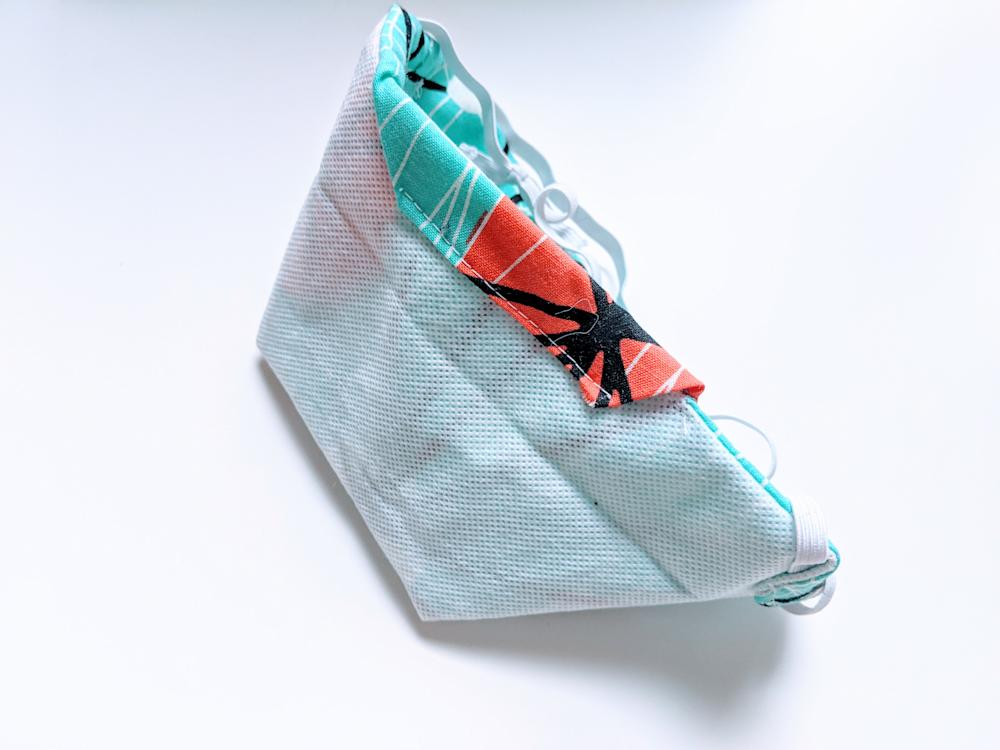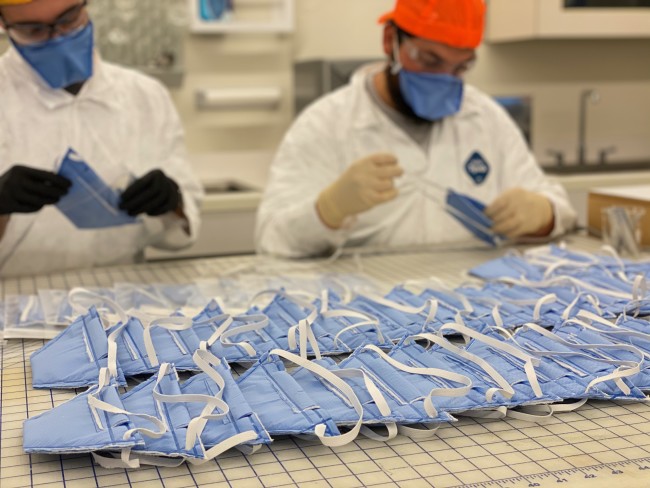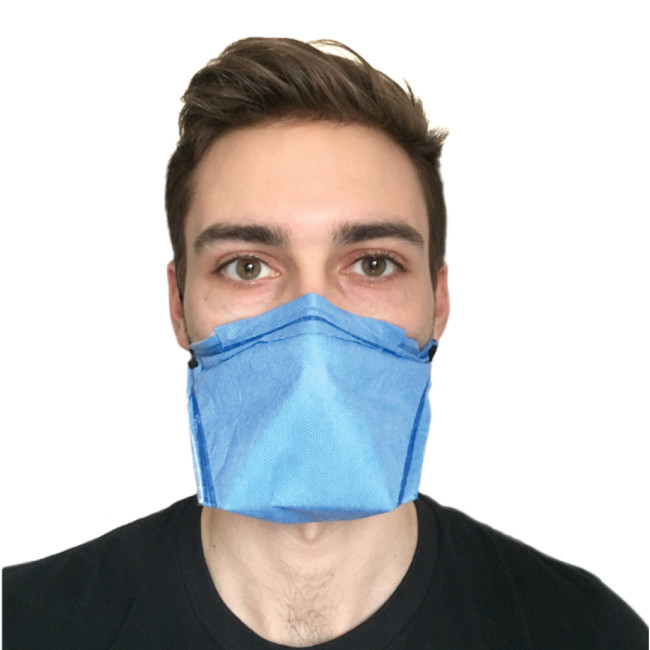
Just over two weeks ago, EPAM Continuum released the GENTL Mask, an open source solution for manufacturers to address the current shortage of protective masks for healthcare professionals. Since then, we’ve received questions from individuals looking to sew a cloth version of the GENTL Mask at home. In light of the CDC recommendation for the general public to wear cloth face coverings in public settings to slow the spread of COVID-19, EPAM Continuum has created sewing instructions for the GENTL Mask design for those who wish to make their own cloth face covering.
The GENTL Mask shape offers a comfortable-yet-snug fit to the face. Fabric is kept away from the mouth. A moldable nosepiece helps prevent warm air from escaping around the top of the mask (and fogging glasses). Elastic bands—or alternatives such as stretchy shoelaces or a ¾”-wide strip of jersey fabric—hold the mask securely in place.
If you make a cloth GENTL Mask, share your results with us on Twitter and/or Instagram, and please use the hashtag #GENTLmask.

Download the instructions here.
To learn more about the GENTL Mask, visit EPAM's SolutionsHub page.









